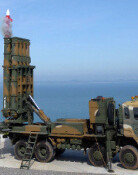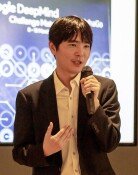Korean companies’ business expansion in the US
Korean companies’ business expansion in the US
Posted January. 17, 2023 07:47,
Updated January. 17, 2023 07:47
Leading Korean companies are increasingly building manufacturing facilities in the Southeastern region of the U.S. Samsung Electronics’ chip-making facilities, Hyundai Motor’s electric car plant, LG Energy Solution, and SK ON’s battery plants are being built and preparing for operation. These efforts reflect Korean companies’ efforts to adapt to the US government’s so-called “Made In America” policy to bolster the manufacturing of high-tech products in the U.S.
The foundry plant that Samsung Electronics is building in Texas is scheduled to be completed this year. It took less than two years to build the facility after announcing that it would build the plant by investing 17 billion dollars two years ago. Hyundai Motor is building an electric car plant in Georgia, targeting to open in 2025. The plant, which is jointly built with Ford by SK On, will start manufacturing batteries to be equipped on electric pick-up trucks two years away from now. LG Electronic’s plant in Tennessee, which produces 12 million washing machines a year, was named a lighthouse factory by the World Economic Forum.
The U.S. government’s policy impacted Korean companies’ expansion to the U.S. Shortly after taking office, President Joe Biden invited leading Korean semiconductor and battery manufactures to the White House and encouraged investment in the U.S. Many states and cities vied to attract these companies suggesting significant tax benefits. Cities in the southeastern part of the U.S., with low tax rates, labor costs, and fewer regulations, have kept to their word by building “Samsung highways" and “LG highways” leading to the plants.
Korean companies’ investment in the U.S. is the successful outcome of winning an intense competition for survival in the global market. This is the same reason why Taiwanese company TSMC, which leads the foundry business, is building plants in the U.S. and Japan. Chinese company CATL, the no. 1 battery producer, is building a joint factory in the U.S. as well. If Korean companies hadn’t set early footholds in next-generation industries and widened gap with other competitors, advanced economies such as the U.S. and the E.U. wouldn’t have asked Korean companies to build factories in their countries.
However, we must keep in mind that industries around the world are facing mounting challenges of countries putting their own interests first and deteriorating free trade. Even Korean businesses, whose position stands higher than ever, should not remain complacent and be mindful that even the slightest slip can result in a major fall. We need to exert all efforts to provide talent, reduce regulations and promote business through diplomacy so that Korean companies can continue to lead high-tech businesses.







